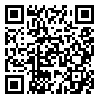1. Sadiq Fareed MM, Raza A, Zhao N, Tariq A, Younas F, Ahmed G, et al. Predicting divorce prospect using ensemble learning: support vector machine, linear model, and neural network. Comput Intell Neurosci. 2022;2022:1–15. [
DOI]
2. Cao H, Fine MA, Zhou N. The divorce process and child adaptation trajectory typology (DPCATT) model: the shaping role of predivorce and postdivorce interparental conflict. Clin Child Fam Psychol Rev. 2022;25(3):500–28. [
DOI]
3. Izadpanah S, Charmi M. The effect of social networks on academic self-handicapping with the mediating role of self-regulatory learning strategies and academic achievement among EFL students. Front Psychol. 2022;13:987381. [
DOI]
4. Stangl FJ, Riedl R, Kiemeswenger R, Montag C. Negative psychological and physiological effects of social networking site use: the example of Facebook. Front Psychol. 2023;14:1141663. [
DOI]
5. Li H, Wu Y, Bai Z, Xu X, Su D, Chen J, et al. The association between family health and frailty with the mediation role of health literacy and health behavior among older adults in China: nationwide cross-sectional study. JMIR Public Health Surveill. 2023;9:e44486. [
DOI]
6. Bashirpour M, Shafiabadi A, Doukaneifard F. Factors affecting the tendency to marital infidelity: a grounded theory study. Journal of Qualitative Research in Health Sciences. 2020;8(4):16–27. [Persian] [
DOI]
7. Peikanian R, Farhadi H. Study of internet addiction and the use of online massaging and internet infidelity as antecedent of a divorce couples and divorce limen in Isfahan. Research in Cognitive and Behavioral Sciences. 2017;7(1):81–90. [Persian] [
Article]
8. Eskandari H, Darrodi H. A study on relationship between the social networks usage and social networks addiction and couple conflicts and divorce tendency. Strategic Studies on Youth and Sports. 2017;15(33):133–50. [Persian] [
Article]
9. Faramarzi S, Ajalloueian N, Ghasemi S. Predicting cyberspace addiction based on marital intimacy, self-worth and life quality in married women. Journal of Applied Family Therapy. 2023;4(1):420–46. [Persian] [
DOI]
10. Delavar A. Educational and psychological research. Tehran: Virayesh Pub; 2015. [Persian]
11. Khajeahmadi M, Pooladi S, Bahreini M. Design and assessment of psychometric properties of the Addiction to Mobile Questionnaire Based on Social Networks. Iranian Journal of Psychiatric Nursing. 2016;4(4):43–51. [Persian] [
Article]
12. Whatley MA. Attitudes toward infidelity scale. In: Knox D, Schacht C; editors. Choices in relationships. Belmont, California: Thompson Wadsworth publishing; 2008.
13. Habibi M, Sayed Alitabar SH, Pouravari M, Salehi S. Reliability, validity and factor structure for the Attitudes Toward Infidelity Scale. J Research Health. 2019;9(4):294–301. [Persian] [
Article]
14. Liu J, Yu NN, Cheng M, Wu C. Internet use and better-informed divorce in China. Behav Sci. 2023;13(2):177. [
DOI]
15. Kuss DJ, Griffiths MD. Online social networking and addiction—a review of the psychological literature. Int J Environ Res Public Health. 2011;8(9):3528–52. [
DOI]
16. Muise A, Christofides E, Desmarais S. More information than you ever wanted: does facebook bring out the green-eyed monster of jealousy? CyberPsychol Behav. 2009;12(4):441–4. [
DOI]
17. Farhad A, Farhadi H. Predicting the divorce tendency through internet addiction, internet infidelity and computer game addiction in people seeking divorce. Journal of Psychology New Ideas. 2021;8(12):1–14. [Persian] [
Article]

 ، علی خانه کشی*2
، علی خانه کشی*2 
 ، شهنام ابوالقاسمی3
، شهنام ابوالقاسمی3 




